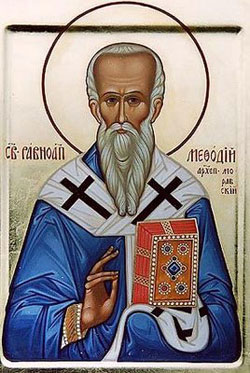We ask you, urgently: don't scroll past this
Dear readers, Catholic Online was de-platformed by Shopify for our pro-life beliefs. They shut down our Catholic Online, Catholic Online School, Prayer Candles, and Catholic Online Learning Resources essential faith tools serving over 1.4 million students and millions of families worldwide. Our founders, now in their 70's, just gave their entire life savings to protect this mission. But fewer than 2% of readers donate. If everyone gave just $5, the cost of a coffee, we could rebuild stronger and keep Catholic education free for all. Stand with us in faith. Thank you.Help Now >
Sulpicius Severus
FREE Catholic Classes
An ecclesiastical writer, born of noble parents in Aquitaine c. 360; died about 420-25. The scanty information which we possess concerning his life is derived mainly from the writings of his friend Paulinus of Nola and Gennadius. He enjoyed excellent educational advantages, studied jurisprudence, and was renowned as an eloquent lawyer. His marriage with the daughter of a wealthy consular family seemed to seal his earthly happiness. His wife, however, was snatched away by a premature death and shortly after 390 Severus renounced his brilliant career and followed his friend Paulinus into monastic retirement. Through this sudden change of life he incurred his father's displeasure, but was encouraged in his determination by his mother-in-law. He became a personal friend and enthusiastic disciple of St. Martin and lived near Eauze, at Toulouse and Luz in Southern France. His ordination to the priesthood is vouched for by Gennadius, but no details of his priestly activity have reached us. According to the same Gennadius he was caught in the toils of Pelagianism towards the close of his life and, upon discovering his error, subjected himself to lifelong silence in expiation of his imprudence in speech.
The following works are undoubtedly genuine:
- (1) "The Chronicle";
- (2) "Life of St. Martin";
- (3) two dialogues, formerly divided into three;
- (4) three letters.
"The Chronicle" ("Chronicorum Libri duo" or "Historia sacra") extends from the creation of the world to A. D. 400, but omits the historical events recorded in the New-Testament writings. It was published in or after 403 and has been preserved in a single eleventh-century manuscript. It is a source of primary importance for the history of Priscillianism and contains considerable information respecting the Arian controversy. More popular during the Middle Ages was his "Life of St. Martin", as were also the dialogues and letters which relate to the same subject. The biography was written during the lifetime of the saint, but was published only after his death. Like the dialogues, it abounds in miraculous events. Beside the, above-mentioned three letters, seven others have been attributed to Severus. These are rejected as spurious by some critics, whilst the genuineness of the first two is admitted, rightly it would seem, by others. The "World Chronicle" of the so-called Sulpicius Severus has nothing to do with the subject of this biography; it was written in Spain in the sixth century. Sulpicius Severus has been rightly styled the Christian Sallust; his diction, notably in the "Chronicle", is elegant and reminds the reader of the classical age.
Join the Movement
When you sign up below, you don't just join an email list - you're joining an entire movement for Free world class Catholic education.
-

- Easter / Lent
- Ascension Day
- 7 Morning Prayers
- Mysteries of the Rosary
- Litany of the Bl. Virgin Mary
- Popular Saints
- Popular Prayers
- Female Saints
- Saint Feast Days by Month
- Stations of the Cross
- St. Francis of Assisi
- St. Michael the Archangel
- The Apostles' Creed
- Unfailing Prayer to St. Anthony
- Pray the Rosary
Catholic Online News Declares War on Lies – A 2,000-Year-Old Force for Truth Enters the Global News Arena
How to Build a Nuclear Bomb: Start to Strike
Saint Anthony of Padua: The Miracle-Worker Who Brings Us Back to Christ
Daily Catholic
 Daily Readings for Sunday, June 15, 2025
Daily Readings for Sunday, June 15, 2025 St. Germaine Cousin: Saint of the Day for Sunday, June 15, 2025
St. Germaine Cousin: Saint of the Day for Sunday, June 15, 2025 Prayer for God's Blessing of One's Daily Work: Prayer of the Day for Sunday, June 15, 2025
Prayer for God's Blessing of One's Daily Work: Prayer of the Day for Sunday, June 15, 2025 Daily Readings for Saturday, June 14, 2025
Daily Readings for Saturday, June 14, 2025 St. Methodius I: Saint of the Day for Saturday, June 14, 2025
St. Methodius I: Saint of the Day for Saturday, June 14, 2025- Prayer for America: Prayer of the Day for Saturday, June 14, 2025
![]()
Copyright 2025 Catholic Online. All materials contained on this site, whether written, audible or visual are the exclusive property of Catholic Online and are protected under U.S. and International copyright laws, © Copyright 2025 Catholic Online. Any unauthorized use, without prior written consent of Catholic Online is strictly forbidden and prohibited.
Catholic Online is a Project of Your Catholic Voice Foundation, a Not-for-Profit Corporation. Your Catholic Voice Foundation has been granted a recognition of tax exemption under Section 501(c)(3) of the Internal Revenue Code. Federal Tax Identification Number: 81-0596847. Your gift is tax-deductible as allowed by law.


 Daily Readings for Sunday, June 15, 2025
Daily Readings for Sunday, June 15, 2025 St. Germaine Cousin: Saint of the Day for Sunday, June 15, 2025
St. Germaine Cousin: Saint of the Day for Sunday, June 15, 2025 Prayer for God's Blessing of One's Daily Work: Prayer of the Day for Sunday, June 15, 2025
Prayer for God's Blessing of One's Daily Work: Prayer of the Day for Sunday, June 15, 2025 St. Methodius I: Saint of the Day for Saturday, June 14, 2025
St. Methodius I: Saint of the Day for Saturday, June 14, 2025


